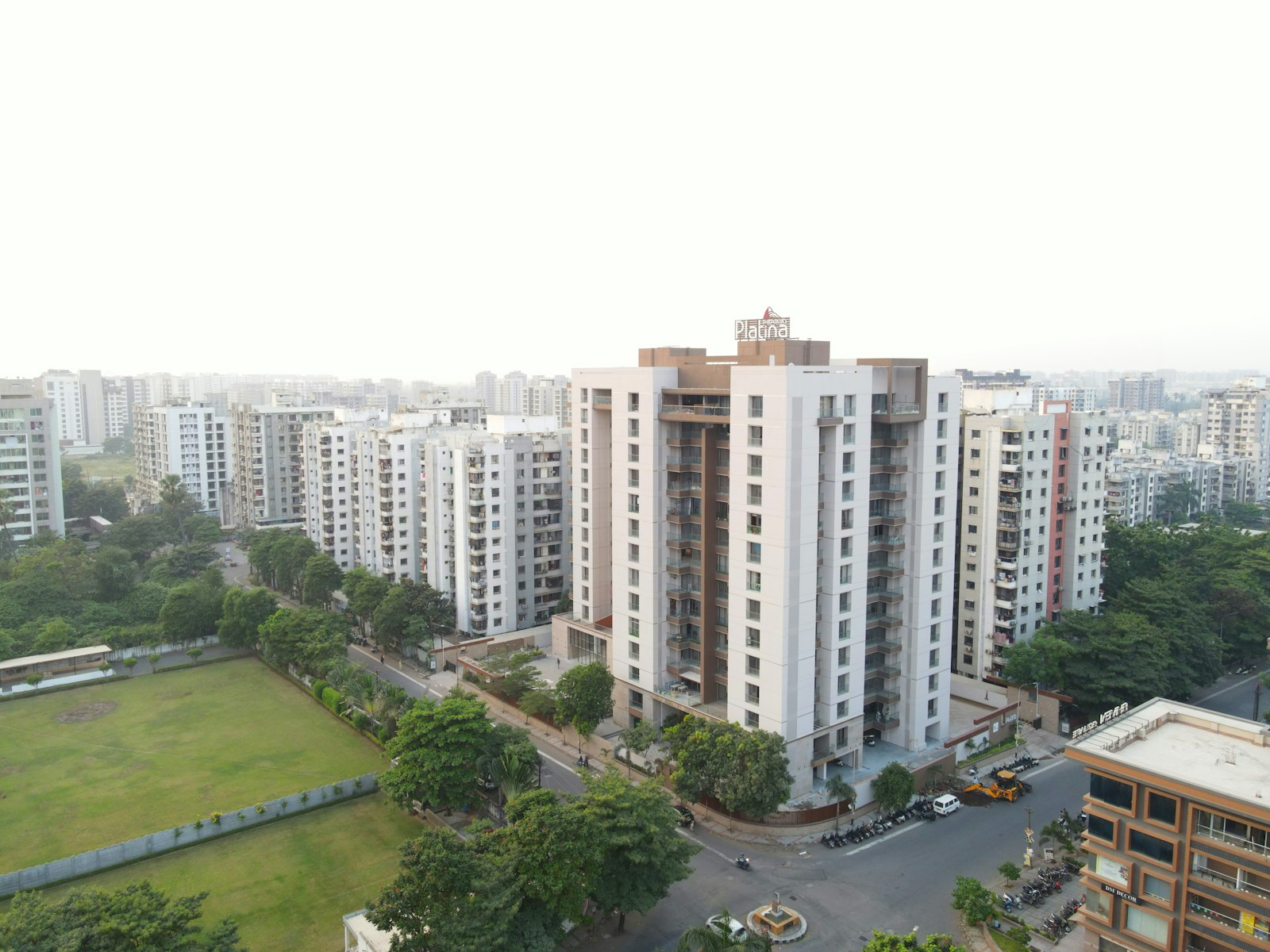Estimated reading time: 14 minutes
Purchasing a property is a major financial decision, especially in a diverse and rapidly evolving real estate market like India. Whether it is for residential, commercial, or investment purposes, buying property in India comes with a myriad of factors that need careful attention to avoid potential risks and ensure a successful transaction. This article provides an in-depth guide on the key considerations every buyer should keep in mind before purchasing a property in India.
1. Location: The Most Critical Factor
The location of the property is one of the primary aspects that will determine its value, accessibility, and future appreciation. The value of a property can vary significantly based on its location, and proximity to essential services and transportation links. Here are the key elements to evaluate in terms of location:
- Proximity to Workplaces: Especially in urban areas, the proximity to business hubs, IT parks, and other employment centers is vital. Properties located near workplaces or well-connected to these hubs tend to see higher demand and, in turn, higher property appreciation.
- Connectivity: Good road networks, access to public transportation, and proximity to highways or metro stations enhance the attractiveness of a location. Check for future infrastructure development plans such as new highways, metro projects, or airports in the vicinity.
- Neighborhood Infrastructure: Basic amenities like hospitals, schools, grocery stores, malls, and entertainment centers should be nearby. Having such facilities within a short distance improves the quality of life and makes the property more attractive for future buyers or tenants.
- Safety and Security: Evaluate the safety of the neighborhood. Check for the availability of police stations, fire stations, and the crime rate in the area. A safe neighborhood enhances the long-term desirability of the property.
- Future Development Plans: Verify whether there are upcoming government or private infrastructure projects in the area that could positively or negatively impact property prices. For instance, a metro project could increase connectivity, boosting property value, whereas an industrial setup could reduce the residential desirability of an area.
2. Legal Due Diligence
Legal clearances and documentation are crucial in a real estate transaction. Skipping this step can lead to legal complications and disputes later on. Here are the key legal checks you must perform before buying a property:
- Title Verification: Ensure the seller has a clear title to the property and is its rightful owner. This can be verified by obtaining the title deed, which should ideally cover a minimum of 30 years of property ownership history.
- Encumbrance Certificate: An Encumbrance Certificate (EC) is critical to ensure that the property is free of legal dues. It certifies that the property does not have any pending loans, liens, or mortgages against it.
- RERA Compliance: The Real Estate Regulatory Authority (RERA) was introduced to promote transparency in the real estate sector. Ensure the property or project is RERA-registered. It not only confirms the legality of the project but also protects buyers against any malpractice from builders or developers.
- Land Use and Zoning: Check whether the land on which the property is built is categorized for the intended purpose (residential, commercial, industrial). Zoning laws vary from state to state in India, and buying property on incorrectly zoned land can lead to legal issues in the future.
- Government Approvals: Check if the property has all the necessary government approvals for construction. This includes permissions from local authorities for water, electricity, sewage, and fire safety, among others. Additionally, if you’re buying an under-construction property, verify if the project has received environmental clearance, especially for larger projects.
- Litigation-Free Status: Check if the property or land is involved in any ongoing litigation. Purchasing disputed property could land you in long-drawn legal battles. A legal expert or property lawyer can help you perform this due diligence thoroughly.
3. Financial Planning and Budget
Before setting your sights on a property, it’s essential to assess your finances and determine how much you can afford without straining your financial situation. Here’s what to consider:
- Determine the Budget: Based on your savings, expected income, and financial goals, set a realistic budget. Avoid stretching your budget by relying excessively on loans, as this can cause financial stress in the long term.
- Home Loan Eligibility: Research your home loan eligibility based on your income, credit score, and other financial obligations. In India, most financial institutions typically provide home loans up to 80-90% of the property’s value, while the rest needs to be paid as a down payment by the buyer.
- Interest Rates and EMI Calculations: Compare home loan interest rates from different banks and financial institutions. Even a small variation in interest rates can make a significant difference in the overall cost of the loan. Use EMI calculators available online to understand your repayment obligations and whether you can comfortably handle them alongside other financial responsibilities.
- Down Payment: Be prepared to make a down payment of 10-20% of the property’s value, depending on the loan-to-value ratio offered by the bank. Make sure you have this amount saved before initiating the buying process.
- Hidden Costs: Apart from the property’s base price, factor in additional costs such as registration fees, stamp duty, legal fees, maintenance charges, and property taxes. These expenses can add up to a significant amount, so plan your budget accordingly.
4. Builder Reputation and Track Record
If you are purchasing a property from a builder or developer, especially an under-construction project, it’s essential to investigate their reputation and previous track record. Key checks include:
- Past Projects: Research the developer’s past projects in terms of quality, timeliness, and adherence to promises made to buyers. Projects delayed beyond the stipulated time frame are common in India, and they can cause financial and emotional stress.
- Financial Stability: A financially unstable builder may fail to complete the project on time, or worse, abandon it midway. Checking the financial health of the developer can give you an idea of the reliability of the project.
- Legal Disputes: Check if the builder has any past legal disputes with buyers or authorities. A builder with a clean legal track record is more likely to provide a smooth and transparent buying process.
5. Construction Quality and Amenities
The quality of construction and the amenities provided by the developer are critical in determining the comfort, safety, and future value of the property.
- Materials and Build Quality: Visit the construction site and, if possible, consult with civil engineers or architects to assess the quality of construction materials used. Poor-quality construction can lead to safety hazards and increased maintenance costs in the long run.
- Building Age (For Resale Properties): If you are purchasing a resale property, check the age of the building. Older properties often require significant maintenance and may have worn-out infrastructure such as plumbing, wiring, or roofing.
- Amenities: Developers often market projects with a range of amenities, including gyms, swimming pools, gardens, clubhouses, and security systems. While these facilities enhance the livability of the property, they come with additional maintenance costs. Verify if these amenities are actually provided as promised and are worth the additional cost.
6. Resale and Rental Value
Even if you are buying a property for personal use, it’s important to consider its future resale or rental value. This ensures that your investment appreciates over time and can be easily sold or rented out if needed.
- Market Trends: Study the current and historical property price trends in the locality. Areas with robust demand and limited supply tend to show higher appreciation rates.
- Rental Income Potential: If you plan to generate rental income from the property, analyze the rental market in the area. High rental demand typically translates into better returns on investment, especially in metropolitan cities like Mumbai, Delhi, Bengaluru, and Chennai.
- Ease of Resale: Properties located in well-established areas with good infrastructure, amenities, and safety records are generally easier to sell in the future. Additionally, properties in upcoming areas where significant infrastructure development is planned may offer substantial appreciation potential.
7. Payment Plan and Possession Timelines
If you’re buying an under-construction property, it’s important to have a clear understanding of the payment plan and the expected possession timeline.
- Construction-Linked Payment Plans: In India, developers often offer construction-linked payment plans where the buyer pays installments as the project progresses. Ensure that the payment plan aligns with the construction milestones to avoid paying large sums upfront for incomplete projects.
- Delivery Timelines: Delays in possession are a common issue in India’s real estate sector. Check the builder’s past record regarding project delivery. Opt for a project that offers a reasonable buffer for potential delays, but also check the legal provisions and penalties in case the builder fails to deliver the project on time.
8. Stamp Duty and Registration Fees
Stamp duty and registration fees are mandatory legal costs when purchasing a property in India. These costs vary from state to state and depend on factors like the property’s value and its location.
- Stamp Duty: This is a tax levied on the sale of a property and is usually around 5-8% of the property’s market value. Ensure that you factor this cost into your budget.
- Registration Fees: This is the fee paid to the government to register the property in your name and usually amounts to 1-2% of the property’s value.
9. Home Insurance
Purchasing home insurance is often an overlooked aspect when buying a property in India. Although not mandatory, having home insurance can safeguard your property against unforeseen risks such as natural disasters, theft, fire, or other accidental damages.
- Types of Home Insurance: There are different types of insurance policies available, including structure insurance, content insurance, and comprehensive insurance. Structure insurance covers damages to the building itself, while content insurance covers the loss or damage to personal belongings within the property. A comprehensive policy offers both types of protection.
- Cost of Insurance: The cost of home insurance depends on the property’s size, location, and coverage. Urban properties, particularly in cities prone to natural calamities (like Mumbai, Chennai, or Kolkata), may have higher premiums. Make sure to include this cost when planning your overall budget.
10. Taxes on Property Purchase
There are several taxes associated with property purchases in India, and understanding them is crucial to ensure compliance and accurate financial planning.
- Goods and Services Tax (GST): GST is applicable on under-construction properties or properties that have not received a completion certificate. The GST rate is typically 5% for residential properties without Input Tax Credit (ITC) and 1% for affordable housing projects. There is no GST on ready-to-move-in properties.
- Capital Gains Tax: If you’re purchasing a property for investment purposes, be aware of capital gains tax implications upon selling. Short-term capital gains (if sold within two years of purchase) are taxed at the individual’s income tax rate. Long-term capital gains (if sold after two years) are taxed at 20% with indexation benefits.
- Property Tax: Property owners are required to pay annual property tax to the local municipal body. The amount depends on the location, size, and usage of the property (residential or commercial). Ensure you’re aware of the applicable property tax and its payment schedule.
11. Verifying Utilities and Essential Services
When buying a property, especially a newly constructed one, it’s important to ensure that all essential services are in place. Verifying utilities and amenities before making the purchase will save you from future inconveniences.
- Water and Electricity Supply: Ensure the property has proper water supply and is connected to the local power grid. In some cases, the builder might promise these utilities but fail to deliver them on time, leaving buyers to rely on temporary arrangements like borewells or generators.
- Sewage and Waste Management: Verify the existence of a proper sewage system and waste management facilities. Areas with poor waste management often face sanitation issues, affecting the quality of living and property value.
- Telecom and Internet Connectivity: With the rise in remote work and digital connectivity, access to reliable internet and mobile network services is essential. Make sure the property is in an area with good telecom coverage, and check if fiber optic internet connections are available.
12. Vastu Shastra and Cultural Considerations
In India, Vastu Shastra (traditional Indian architecture guidelines) plays a significant role in property purchases. Many buyers consider properties that align with Vastu principles to bring good fortune and well-being. While this may not be a concern for all buyers, it is worth noting that properties compliant with Vastu principles often have higher demand in the Indian real estate market.
- Vastu Compliance: If you are buying a property for self-use and believe in Vastu, ensure that the property layout adheres to the basic principles of Vastu Shastra, such as the orientation of rooms, placement of entrances, and directional alignment.
- Cultural Sensitivity: In some areas, properties with certain historical or cultural significance may have specific rules or restrictions. Be mindful of such cultural considerations if they apply to your property location.
13. Resale Property vs. Under-Construction Property
Choosing between a resale property and an under-construction property has its own set of advantages and disadvantages. It’s essential to understand these differences to make an informed decision.
- Resale Property:
- Immediate Possession: One of the major advantages of purchasing a resale property is that you can take immediate possession and avoid the risk of construction delays.
- Established Neighborhood: In most cases, resale properties are located in established areas with developed infrastructure and amenities.
- Depreciation: Older properties may have depreciated infrastructure, and renovation costs might be necessary.
- Under-Construction Property:
- Lower Initial Cost: Under-construction properties are usually priced lower than ready-to-move-in properties, making them an attractive option for buyers with a limited budget.
- Customization: Many developers offer buyers the option to customize certain aspects of the property, such as interiors, while it’s still under construction.
- Delays and Risks: There is a risk of project delays or incomplete projects if the builder faces financial or legal issues. Make sure to choose reputable developers with a proven track record.
14. Environment and Sustainability
As global awareness about sustainability increases, considering eco-friendly and sustainable practices in property construction has become important. Some modern residential and commercial projects are designed with sustainability in mind, offering benefits such as energy efficiency and environmental conservation.
- Green Building Certification: Look for properties with green building certifications, such as LEED (Leadership in Energy and Environmental Design) or IGBC (Indian Green Building Council). These certifications ensure that the property adheres to environmentally friendly practices.
- Energy Efficiency: Properties designed with energy-efficient technologies, such as solar panels, energy-saving lighting, and rainwater harvesting systems, can help reduce utility costs and make your home environmentally friendly.
- Waste Management Systems: Ensure the property follows proper waste segregation and disposal practices, especially in urban areas where waste management can be a major concern.
15. Future Growth Potential
When buying a property, particularly for investment, evaluating the future growth potential of the area can yield long-term benefits. Cities and towns in India are rapidly expanding, and certain locations may offer promising prospects for real estate growth.
- Government Initiatives: Keep an eye on government-backed infrastructure projects, such as new metro lines, expressways, or airport developments, which often lead to a surge in property demand and prices in surrounding areas.
- Real Estate Trends: Areas on the outskirts of major cities, such as Bengaluru, Pune, and Hyderabad, are seeing rapid development. While these areas may currently lack the infrastructure of city centers, they could offer significant appreciation in the future.
Buying a property in India is a significant financial commitment, and careful planning and due diligence are essential for a successful and hassle-free transaction. From evaluating the location and legal documentation to ensuring financial readiness and assessing the future potential, every aspect must be thoroughly considered.
Whether you’re buying a home for personal use or as an investment, making an informed decision will ensure that your property investment not only brings you financial security but also provides peace of mind. Consider seeking advice from real estate experts, legal consultants, and financial advisors before finalizing your purchase to mitigate any risks and make the most of your investment.
With the Indian real estate sector showing steady growth, well-informed property buyers are poised to benefit from the opportunities available. Armed with this comprehensive checklist, you can confidently navigate the complexities of the real estate market and make a decision that aligns with your goals and aspirations.
For the latest tech news and reviews, follow Rohit Auddy on Twitter, Facebook, and Google News.




